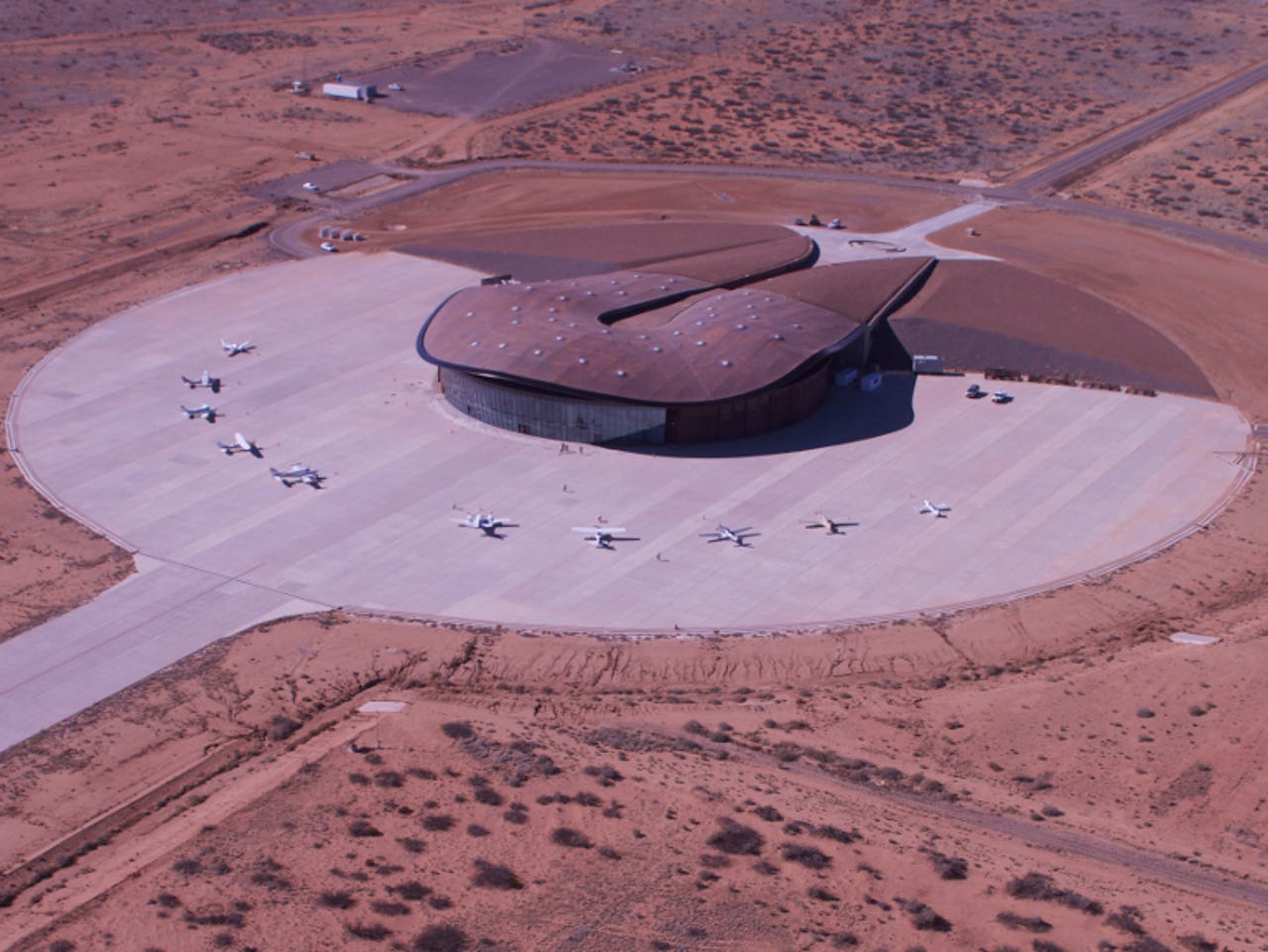Google's hush-hush 100kW transmitter in New Mexico desert: What's going on at SkyBender test site?


Google wants to install a 100kW transmitter at Spaceport America, New Mexico, site of its SkyBender millimeter-wave radio drone project.
Google has applied for a two-year license to install radio transmitters at Spaceport to test millimeter-wave technology that it hopes to commercialize.
An application filed with the FCC reveals Google's request to install a nearly 100kW radio transmitter at Spaceport America, the New Mexico-based hangar where it's running SkyBender, its secretive project using drones to test millimeter-wave radio.
The highly-redacted document doesn't reveal much about what Google is doing beyond conducting field tests in the 2.5GHz band, 5.8GHz band and 71-76GHz and 81-86GHz bands. It also confirms that Google is testing millimeter-wave technology at Spaceport.
Google is paying about $1,000 a day to test its technology from 15,000 square feet of hangar space at Spaceport that was originally designated to Virgin Galactic's stalled spaceflight program.
The Guardian's recent report that revealed the existence of Project SkyBender noted that Google was testing broadcasts at 28GHz.
Also, SkyBender is being run by Google Access, the group responsible for its Gigabit Fiber service in the US. Project SkyBender is employing third-party drones as well as drones made by Google Titan, which have wingspans of up to 50 meters, or 164ft.
The other detail from the new FCC application is that main technical contact is Google hardware engineer, Paul Husted, a former Qualcomm engineer with about 50 wireless patents to his name.
Whatever Google is building, the company does not want rivals figuring out its plan.
"The technology under development is highly sensitive and confidential in nature. The release of such information would provide valuable insight into Google's technology innovations and potential business plans and strategies," a Google lawyer wrote in the application.
"Public disclosure would jeopardize the value of the technology under examination by enabling others to utilize Google's information to develop similar products in a similar time frame."
Google does not want rivals to figure out what it's doing in the New Mexico desert.
Read more on Google
- Google's self-driving car team is now at 170 employees -- and hiring
- Google Photos: Android users get new navigation in design change
- Google joins Zika virus fight: $1m and open source mapping tools to predict outbreaks
- Google shows future of commerce: Hands Free Payments pilot begins in San Francisco
- Google Docs aims to up its presentation template game
- Alphabet's Eric Schmidt heading Pentagon's new innovation board
- More Google Chrome extensions to boost your productivity and privacy